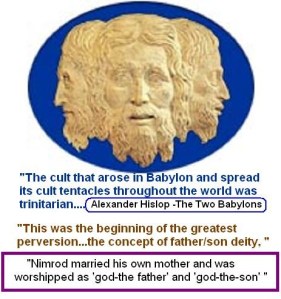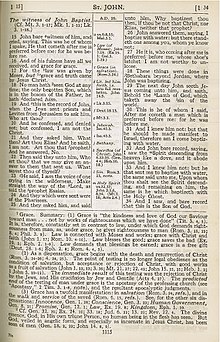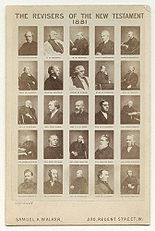Hardships for choosing to follow the real Christ
In this world where most people want to keep to traditions and want to prefer to follow human doctrines instead of Biblical doctrines, the one wanting to believe what God says about Jesus often feels how difficult it is to follow in line with God’s Words.
Many of us have had to endure hardships because we chose to follow Jesus. For many who came to the Truth it took several years before they dared to take the steps in the right direction. Some do know the Biblical Truth and do follow the real Jesus, Jeshua the Nazarene teacher who is also called the son of man and son of God, but do not want to tell it to others. As such, for example, we had a friend who did not believe in the Trinity but kept working as a pastor in a trinitarian preaching company. He told us he could not say openly he did not believe any more in the Trinity because than he would loose his job as minister and would have no income any-more. That is often a very difficult factor, certainly for priests and ministers.
But also lay people have it difficult to make the right choice. Some of them have had to lose friends and family relationships, and on many occasions even had to endure verbal attacks. There are people all over the world who are being put in prison and literally risking their life to follow Jesus.
So the big question for most people is,
“Why?”
Yes
Why do we choose to risk it all to follow this person who we believe rose from the dead? What do we get out of it?

When they were fishermen Jesus had asked those simple men to follow him, what they did. At that time they gave up their profession and their income. The thought of sacrifice very naturally suggests as its correlative that of compensation; so it is not at all to be wondered at that, before this conversation ended, Peter, the impulsive disciple, so much given to think aloud, should blurt out the honest question:
“Behold, we have forsaken all and followed Thee; what shall we have therefore?”
Peter asked Jesus what they would get, and that is perhaps the question which would be on most lips when wondering to follow Jesus or any other person. Certainly (for today) when it is all about a person who lived so many centuries ago and who seemed to have caused so many problems. Peter could not but remember that while the Master had insisted on his disciples denying self to follow him, he had spoken no less clearly of their finding life through losing it, and of their being rewarded according to their deeds. {see Matthew 16:24-27 } A more cautious man would have hesitated before he spoke; but it was no worse to speak it than to think it: and then, it was an honest and fair question; accordingly our Lord gives it a frank and generous answer, taking care, however, before leaving the subject, to add a supplementary caution, fitted to correct what was doubtful or wrong in the spirit it showed.
People should know that everybody is free to choose what or whom to follow. God has given man the free choice. His sent ones, the many prophets often asked people to follow their sayings. Every time they left the choice to the people themselves, never forcing them into doing something what they would not want to do of free choice. The same for the Nazarene master teacher. He never pushed people to come to listen to what he had to say. He never pushed people to come to see what he did. When he walked around in the area people came from their own to see and hear this special man. Not everybody could make up his mind about that special figure and many doubted his position or wondered who he really was and what he came to do.
The word recalls what is said in the book of Genesis as to
“the generation of the heaven and of the earth.”
Nobody can escape to this system and shall have to make the choice to be part of this world or to be part of God’s World. That is what it makes so difficult, man can not live in both worlds. Man can not keep to the human traditions with the many heathen festivals and at the same time claim he worships God. The Divine Creator demands complete submission to the Divine values and norms. One cannot eat from the two walls. God requires an honest surrender to Him. He also has given His son to bring salvation to the world and expects that the world shall come to recognise His only begotten son.
Coming closer to the end-times more adversaries of Gdo shall try to get people away from the Only One True God. They shall do their utmost best to confuse people and to make them to worship an other god than the God of Israel, Who is an Unseen Spirit.
People who come to see Who God is and who His son is and want to follow that son, with the knowledge that this son of God the way to god is, may find it difficult to persevere because the majority is against such an idea that a man would be able to do God’s Will and to offer himself for the sins of others. When you believe that you should be not ashamed and should not go hiding, but should dare to tell about your faith, that you believe that son of man is the son of God who gave his life as a ransom for the sins of many. The belief in the son of God should make you stronger than those who do not believe in that man of flesh and blood who gave his life, was killed, put in a grave but was also taken out of the dead by his heavenly Father. That resurrection of a man is for us the ultimate proof that a human being can stand up from the death. In case Jesus would be God, we naturally would not have any proof at all for the resurrection of man.
That resurrection may give us something to fight for. People may bully us, hurt us and even could kill us, but we do know there is much more behind the ‘curtain of this life’.
No matter what you have had to endure or give up to follow Jesus, the reward in the end is so much greater than what you ever would be able to gather here on earth. We should not be afraid to face those who are against us because we do not want to go for that false teaching of a three-headed god. We should believe in what the Bible tells us and should not be bluffed into silence by the threats of bullies and by those who want to push us in the world of human doctrines. You should know such people may harm you in this life but there shall be nothing they can do to your soul, your core being. Therefore are not afraid for such human beings who ignore the Words of God and Who, as a God Who tells no lies, declared Jesus to be His only begotten son. Save your fear for that God of Israel Who is a Spirit and not a man of flesh and blood who could be killed. That God of Abraham is an eternal Spirit Being, Who holds your entire life — body and soul — in His hands.
“Do not be afraid of those who kill the body but cannot kill the soul. Rather, be afraid of the One who can destroy both soul and body in hell.” (Mt 10:28 NIV)
Our reward for following Jesus is that we shall be able to find the way to God. Jesus is the right way to go. By listening to his words and by doing what he requires from us we shall be able to grow in his teachings and shall find enough strength to continue on the right path.
We may be sure there shall come a moment that the Son of man shall come to sit on the throne of his glory and at the end of times no one shall be able to escape his judgement. therefore let us not worry but look for Jehovah and do what God wants and not so much what the people want from us.
“Seek the LORD, all you humble of the land, you who do what he commands. Seek righteousness, seek humility; perhaps you will be sheltered on the day of the LORD’s anger.” (Zep 2:3 NIV)
When doing what God wants and step in the footsteps of His only begotten son, then we shall be able to go on the right path to the small gate leading to immortal, perfect life where there shall be no more sickness or sorrow any more. Following Jesus worshipping his God we shall come to see the heavenly gates and shall come to see that those who do not believe the Biblical Truth like us may also find death, but shall not be able like us to see their loved ones again who have died.
“”For God so loved the world that he gave his one and only Son, {Or his only begotten Son } that whoever believes in him shall not perish but have eternal life.” (John 3:16 NIV)
“3 And I heard a loud voice from the throne saying,
“Now the dwelling of God is with men, and he will live with them. They will be his people, and God himself will be with them and be their God. 4 He will wipe every tear from their eyes. There will be no more death or mourning or crying or pain, for the old order of things has passed away.”” (Re 21:3-4 NIV)
“13 Brothers, we do not want you to be ignorant about those who fall asleep, or to grieve like the rest of men, who have no hope. 14 We believe that Jesus died and rose again and so we believe that God will bring with Jesus those who have fallen asleep in him. 15 According to the Lord’s own word, we tell you that we who are still alive, who are left till the coming of the Lord, will certainly not precede those who have fallen asleep. 16 For the Lord himself will come down from heaven, with a loud command, with the voice of the archangel and with the trumpet call of God, and the dead in Christ will rise first. 17 After that, we who are still alive and are left will be caught up together with them in the clouds to meet the Lord in the air. And so we will be with the Lord for ever.” (1Th 4:13-17 NIV)
What more could we possibly ask for?
Jesus has promised us everything we can dream of if we choose to suffer now, just like he did. So be encouraged today that you have a tremendous, indescribable reward waiting for you when our king returns!
+
Preceding
Matthew 19:1-2 – The Nazarene’s Commentary: From Galilee to Judah
Matthew 19:3-9 – The Nazarene’s Commentary: Grounds for Divorce
Matthew 19:3-9 – The Nazarene’s Commentary: Grounds for Divorce – additional verses
Matthew 19:10-12 – The Nazarene’s Commentary: Celibacy
Matthew 19:13-15 – The Nazarene’s Commentary: Kingdom Belongs to Child-lik
Matthew 19:16-24 – The Nazarene’s Commentary: Difficulty of Rich Entering the Kingdom
Matthew 19:25-26 – The Nazarene’s Commentary: Who Can be Saved
Matthew 19:27-29 – The Nazarene’s Commentary: We Have Left Everything for You!
Matthew 19:30 – The Nazarene’s Commentary: First Last – Last First
Matthew 19 Concerning the saved ones and those able to enter the Kingdom



 When he started his
When he started his 


 Often they also try to convince you what they are telling, are things you should believe because they are to difficult for a normal human being to understand. They try to convince people around them that the
Often they also try to convince you what they are telling, are things you should believe because they are to difficult for a normal human being to understand. They try to convince people around them that the  Exposing False Teachers
Exposing False Teachers












 It was after 25 years serious research that in 1881 the British bishop, biblical scholar and theologian, and
It was after 25 years serious research that in 1881 the British bishop, biblical scholar and theologian, and 












 Bijbelvorsers Webs
Bijbelvorsers Webs Belgische Vrije Christadelphians / Belgian Free Christadelphians – Old Google Main Website
Belgische Vrije Christadelphians / Belgian Free Christadelphians – Old Google Main Website Christadelphian Ecclesia
Christadelphian Ecclesia Hoop tot Leven – Redding in Christus
Hoop tot Leven – Redding in Christus
Recent Comments